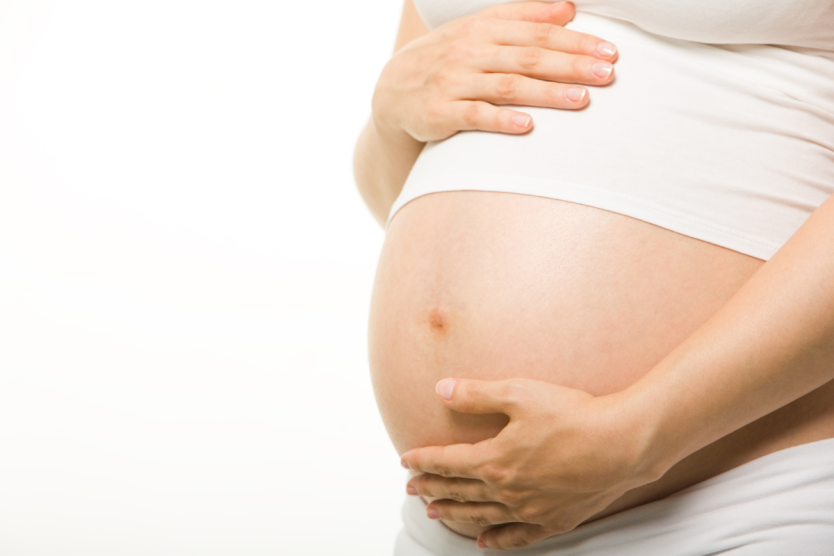Living with fibroids is an experience that varies for every woman.
Many women diagnosed with fibroids don’t have any symptoms. Others have mild symptoms although there are instances when women suffer from back pain, heavy bleeding and other troublesome conditions.
But if you do have fibroids and you’d like to have children, you may wonder, can you get pregnant with fibroids?
Let’s understand these female growths better, including getting pregnant with fibroids.
What Are Uterine Fibroids?
The condition known as uterine fibroids are when a woman has a benign tumor of the smooth muscle cells found in the uterus.1 Fibroids can grow inside or outside the uterine wall, or underneath the uterine lining.2 There can be one or more of these non-cancerous growths, also known as leiomyomas or myomas.3
Uterine fibroids are not usually associated with an increased risk of uterine cancer and the growths themselves almost never develop into cancer.3 They can range from one to many, and vary in size from being small enough that they can’t be detected by the human eye, to large enough that they can distort and enlarge the uterus.3
Symptoms also vary, with some women having no symptoms and not even realizing the existence of fibroids. Other women have abnormal bleeding, including heavy and prolonged bleeding.1 Some women with uterine fibroids may suffer from pelvic pain or discomfort and pain during sex.1
Here are other common symptoms:3
- Periods that last more than a week
- Frequent urination and trouble emptying your bladder
- Constipation
- Backache or leg pains
Uterine fibroids are the most common benign tumors in women, with some studies placing their incidence at 70%.4 That may be underestimated, since many women don’t have symptoms. The number of women who report the clinical symptoms is about 25% to 30%.5
Besides the problems with pain and bleeding, they can sometimes cause pregnancy complications and infertility.4 There are different types of treatments, with one of them being hysterectomy, not something to explore if you want to have children.
Can You Get Pregnant With Fibroids?
Uterine fibroids often appear during childbearing years1, causing women to worry about getting pregnant. Since most fibroids don’t come with any symptoms, many women live their entire lives undiagnosed.2
Many women with fibroids get pregnant, but some types of fibroids may impact fertility.6 In some cases, fibroids can prevent you from getting pregnant or carrying a pregnancy successfully, but it depends on the size and location of the fibroid.2 One example is a fibroid that bulges into the center of the uterus. That can make it more difficult for an embryo to implant into the lining of the uterus.6
If you have symptoms like heavy bleeding, lower back pain, and frequent urination, then your fibroids may be big enough to alter the shape of your uterus. This could increase your chances of having a miscarriage.2
Location is also important. If the fibroid is outside the uterus, it likely won’t affect your chances of getting pregnant or carrying a pregnancy. But if the fibroid happens to block the fallopian tubes, it may prevent the fertilized egg from getting implanted.2
If you know you have fibroids and you are having trouble getting pregnant, it may or may not be because of the fibroids. It’s best to see a doctor for diagnosis and treatment.6 Removing the fibroids may improve fertility, but the main goal of fibroid removal is to alleviate symptoms such as heavy bleeding and bloating.6
Sometimes fibroids in the uterus are removed before pregnancy is attempted. The decision can depend on size and location of the fibroids, and future pregnancies. For instance, the scar from such a surgery could open during labor, so a C-section may be recommended following fibroid surgery.7
If you’re not having severe symptoms, you could wait until after your pregnancy to have fibroids removed. Sometimes, fibroids can grow during pregnancy, which can also cause complications. Once again, it’s best to talk about options with a women’s health specialist.7
See A Doctor
If you suspect you have fibroids, or you’re having trouble getting pregnant, it’s important to seek medical attention. A specialist can outline your treatment options based on the size, number and location of the fibroids, as well as your treatment goals. Factors include the severity of your symptoms, your feelings about surgery, whether you want to get pregnant, and how close you are to menopause.7
Use our Physician Finder to find a doctor near you with expertise in women’s health, who can help determine if you have fibroids, as well as help with treatment options and discuss getting pregnant.




















